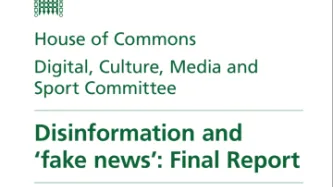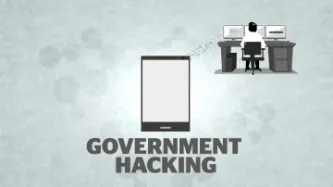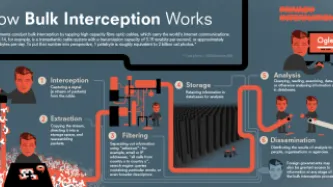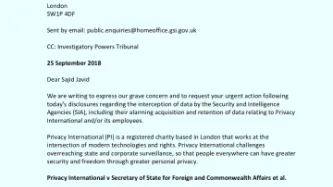Search
Content type: Long Read
(In order to click the hyperlinks in the explainer below, please download the pdf version at the bottom of the page).
Content type: Long Read
(In order to click the hyperlinks in the explainer below, please download the pdf version at the bottom of the page).
Content type: Long Read
(In order to click the hyperlinks in the explainer below, please download the pdf version at the bottom of the page).
Content type: Long Read
(In order to click the hyperlinks in the explainer below, please download the pdf version at the bottom of the page).
Content type: Advocacy
In October 2018, Privacy International submitted to the public consultation on the “Consolidated Guidance to Intelligence Officers and Service Personnel on the Detention and Interviewing of Detainees Overseas, and on the Passing and Receipt of Intelligence Relating to Detainees” (“Consolidated Guidance”) held by the Investigatory Powers Commissioner’s Office (“IPCO”).Privacy International’s submission addresses the portions of the Consolidated Guidance on “the Passing and Receipt…
Content type: Long Read
(In order to click the hyperlinks in the explainer below, please download the pdf version at the bottom of the page).
Content type: News & Analysis
Privacy International welcomes the focus on data and privacy contained in the final report by the UK House of Commons Digital, Culture, Media and Sport Committee (DCMS) on Disinformation and ‘fake news’. Beyond our control, companies and political parties have banded together to exploit our data. This report establishes essential steps to remedying this downward spiral. An important part of the democratic process is freedom of expression and right to political participation, including the right…
Content type: Long Read
Content type: Long Read
UPDATED 11TH JUNE 2019: We've just launched our campaign, and you can now write to your local PCC easily using the online portal we have created with Liberty.
(In order to click the hyperlinks in the explainer below, please download the pdf version at the bottom of the page).
Content type: Advocacy
UPDATE 13 February: Facebook announced that it would open up its Ad Archive API next month. Read Mozilla's statement about the response here.
On 11 February 2019, Privacy International joined Mozilla and 36 organisations in an open letter to Facebook call on Facebook to make good on its commitments to provide more transparency around political advertising ahead of the 2019 EU Parliamentary Elections.
Specifically, our open letter urges Facebook to:
Roll out a functional, open Ad…
Content type: Examples
A flaw in the official 2018 UK Conservative Party conference app granted both read and write access to the private data of senior party members, including cabinet ministers, to anyone who logged in by second-guessing the email address they used to sign into the app. Twitter users claimed that one leading politician, Boris Johnson, had his avatar briefly replaced by a pornographic image, while another, Michael Gove, had his replaced by that of media magnate Rupert Murdoch. The app was…
Content type: Long Read
The Privacy International Network is celebrating Data Privacy Week, where we’ll be talking about how trends in surveillance and data exploitation are increasingly affecting our right to privacy. Join the conversation on Twitter using #dataprivacyweek.
In the era of smart cities, the gap between the internet and the so-called physical world is closing. Gone are the days, when the internet was limited to your activities behind a desktop screen, when nobody knew you were a dog.
Today, the…
Content type: News & Analysis
Privacy International welcomes the judgment of the European Court of Human Rights in Catt v the United Kingdom.The Court found that the UK violated the right to privacy (Article 8 of the European Convention on Human Rights) of Mr John Catt, a peace movement activist, who despite having never being convicted of any offence, had his name and other personal data included in a police database known as the “Extremism Database”. The Court found problematic "the variety of definitions of…
Content type: News & Analysis
On 22 January 2019 Google updated its Terms of Service and Privacy Policy for Europe.
The message is quite reassuring:
“Nothing about your experience in Google services will change. And nothing is changing in terms of your privacy settings, the way your data is processed, nor the purposes of its processing”.
Then it says: “However, if you don’t want to accept these changes in our terms and Privacy Policy, you can choose to stop using the applicable services.”
Simple. If you don’t like it,…
Content type: News & Analysis
We found this image here.
In order for GDPR to be effective at protecting people's data, it must be implemented and enforced. Therefore, we are pleased to see that CNIL has taken action and issued Google a fine of €50 million based on complaints by NOYB and La Quadrature Du Net in May 2018. Despite numerous statements by Google that it takes the protection of people's data seriously, the decision demonstrates that they have a long way to go and that regulators will take action to hold…
Content type: Examples
In November 2018, the UK government announced it would pilot voter ID for in 11 local authorities during thte 2019 local elections in order to gain insight into ensuring voting security and lowering the risk of voter fraud. The Cabinet Office deemed the pilots conducted in five local authorities during the 2018 local elections to be a success. Four models of checking are under consideration: photo ID (Pendle, East Staffordshire, Woking); one photo or up to two non-photo IDs (Ribble Valley,…
Content type: Examples
A database compiled through investigations conducted in 2018 by the Guardian and the Undercover Research Group network of activists shows that undercover police officers spied on 124 left-wing activist groups between 1970 and 2007. The police infiltrated 24 officers over that time within the Socialist Workers Party, which, with a membership of a few thousand, advocates revolution to ablish capitalism. Four of these undercover officers began sexual relationships with deceived female members, and…
Content type: Examples
In 2018, after the UK Cabinet Office said a trial of compulsory voter ID was necessary because reports of voter fraud had more than doubled between the 2014 and 2016 elections - a claim immediately disputed by a voter and upheld by the UK Statistics Authority. While it was true that there were 21 reports in 2014 and 44 in 2016, the number fell to 28 in 2017, small numbers to begin with. Crucially, more than twice as many people voted in 2016, the year of the EU referendum. None of the five…
Content type: Examples
In 2018 a report from the Royal United Services Institute found that UK police were testing automated facial recognition, crime location prediction, and decision-making systems but offering little transparency in evaluating them. An automated facial recognition system trialled by the South Wales Police incorrectly identified 2,279 of 2,470 potential matches. In London, where the Metropolitan Police used facial recognition systems at the Notting Hill Carnival, in 2017 the system was wrong 98% of…
Content type: Examples
In October 2018, in the wake of the Cambridge Analytica scandal and questions over Facebook's influence on the UK's EU referendum, Facebook announced it would add Britain to the US and Brazil on the list of countries where the company will no longer allow political groups to publish "dark" ads on its network. Among the changes: all paid-for political content will be automatically published in a public library for up to seven years; individuals and organisations running ads with political…
Content type: Long Read
As our four year battle against the UK government’s extraordinarily broad and intrusive hacking powers goes to the Supreme Court, we are launching a new fundraising appeal in partnership with CrowdJustice.
We are seeking to raise £5k towards our costs and need your help. If we lose, the court may order us to pay for the government’s very expensive army of lawyers. Any donation you make, large or small, will help us both pursue this important case and protect the future ability of…
Content type: News & Analysis
Email addresses
Acxiom: [email protected]
Criteo: [email protected]
Equifax: [email protected]
Experian: [email protected]
Oracle: https://oracle.ethicspointvp.com/custom/oracle/dp/en/form_data.asp
Quantcast: [email protected] cc: [email protected]
Tapad: [email protected]
Letter for Acxiom and Oracle
subject line: Right to Erasure Request
I am concerned your company exploits my data.
In accordance with my right[s] under the General Data…
Content type: News & Analysis
Our team wanted to see how data companies that are not used to being in the public spotlight would respond to people exercising their data rights. You have the right under the EU General Data Protection Regulation ("GDPR") to demand that companies operating in the European Union (either because they are based here or target their products or services to individuals in the EU) delete your data within one month. We wrote to seven companies and requested that they delete our data, and we've made…
Content type: Press release
Today, Privacy International has filed complaints against seven data brokers (Acxiom, Oracle), ad-tech companies (Criteo, Quantcast, Tapad), and credit referencing agencies (Equifax, Experian) with data protection authorities in France, Ireland, and the UK. Privacy International urges the data protection authorities to investigate these companies and to protect individuals from the mass exploitation of their data.
Our complaints target companies that, despite exploiting the data of millions of…
Content type: Advocacy
Today, Privacy International has filed complaints against seven data brokers (Acxiom, Oracle), ad-tech companies (Criteo, Quantcast, Tapad), and credit referencing agencies (Equifax, Experian) with data protection authorities in France, Ireland, and the UK.
It’s been more than five months since the EU’s General Data Protection Regulation (GDPR) came into effect. Fundamentally, the GDPR strengthens rights of individuals with regard to the protection of their data, imposes more…
Content type: News & Analysis
Privacy International notes a recent ruling issued by Italy’s Supreme Court (Corte di Cassazione) that addresses the need to limit government hacking powers for surveillance purposes and articulates required safeguards when hacking is conducted as part of a criminal investigation.
The ruling addresses the appeals of several individuals involved in a case of corruption; the appeals challenge irregularities in the collection of data as part of the criminal investigation, which resulted in the…
Content type: Long Read
Photo credit: Pixabay
This piece was originally published in iNews
It seems that you can’t go anywhere online at the moment without being reassured that ‘we respect your privacy’ and being directed to a 2,000-word privacy policy. You probably just click ‘got it, thanks’ because who has the luxury to stop and think about what their ‘privacy’ actually means?
But privacy is something that starts becoming far less abstract when you can see how it is being threatened and undermined, every day and…
Content type: Long Read
This piece was originally published in Just Security.
Earlier this month, the European Court of Human Rights issued a major judgment in three consolidated cases challenging the U.K. government’s mass interception program, which was first revealed by Edward Snowden in 2013. That judgment finds notable deficiencies in the legal framework governing mass interception, rendering the program unlawful under Articles 8 and 10 of the European Convention on Human Rights (ECHR), which protect the rights…
Content type: Long Read
Written jointly by Privacy International and the American Civil Liberties Union (ACLU).
In a landmark decision earlier this month, the European Court of Human Rights ruled that one of the mass surveillance programs revealed by Edward Snowden violates the rights to privacy and freedom of expression. While the case challenges the U.K. government’s mass interception of internet traffic transiting its borders, the court’s judgment has broader implications for mass spying programs in Europe and…
Content type: Long Read
The UK's domestic-facing intelligence agency, MI5, today admitted that it captured and read Privacy International's private data as part of its Bulk Communications Data (BCD) and Bulk Personal Datasets (BPD) programmes, which hoover up massive amounts of the public's data. In further startling legal disclosures, all three of the UK's primary intelligence agencies - GCHQ, MI5, and MI6 - also admitted that they unlawfully gathered data about Privacy International or its staff. You can read the…




























